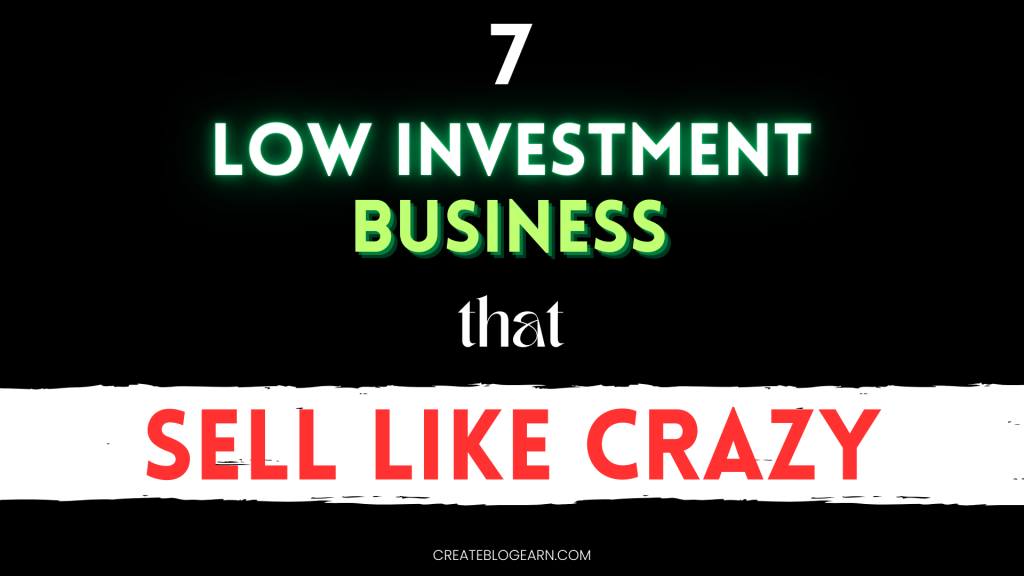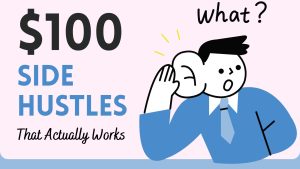You can learn the technicalities of personal finance. That’s something an MBA professional can do too, but don’t you think there’s something more different than just being an MBA professional who knows complex mathematics and someone who know how money actually works? Yes, it of course is… And that’s what these books will teach you. Non of the books I’ll recommend here are focused on financial calculations. Rather these books will teach you the secrets of how money works.
(1) The Psychology Of Money (Morgan Housel)
Fight me if you want, but The Psychology of Money is the best beginner personal finance book I have ever read. If you’re an absolute beginner and don’t know anything about money management and finance in general, then this book will teach you.
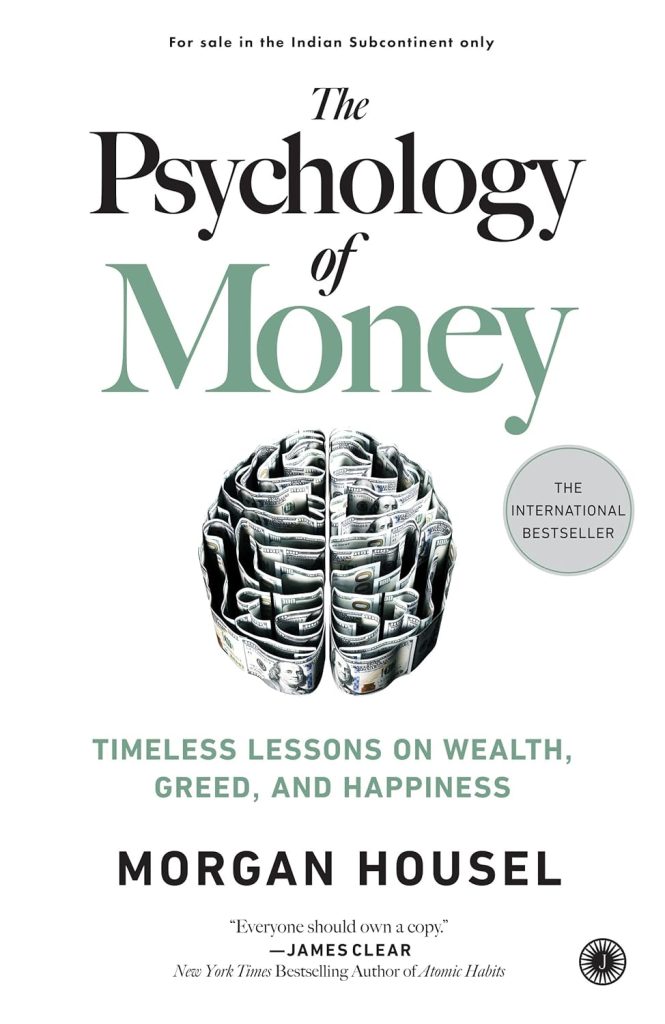
The book is written is super-easy language, and, the best part, it’s non-technical. You don’t have to swim through complex mathematics only to be frustrated and quit. Morgan has purposefully kept the book short and concise to not bore you.
In fact, at the very beginning of the book he says that he purposefully kept this book short. Which is great for beginners who don’t want to be overwhelmed. READ IT!! I can vouch for this one…
(2) The Millionaire Fastlane (MJ DeMarco)
A little more aggressive than The Psychology Of Money, this book is also my personal favorite. The first think that came to my mind after reading The Millionaire Fastlane is that “this book is No Sh*t Sherlock.” Yeah, this book directly hurts your ego about money and forces you to think about your beliefs towards money.
The reason why The Millionaire Fastlane will fuel you your fire and honestly force you to make money is the way it represents hard work and its connection with making money. One thing that I remember from the book is: Getting rich quick is not a fantasy; it is a formula. And, that’s super-accurate!
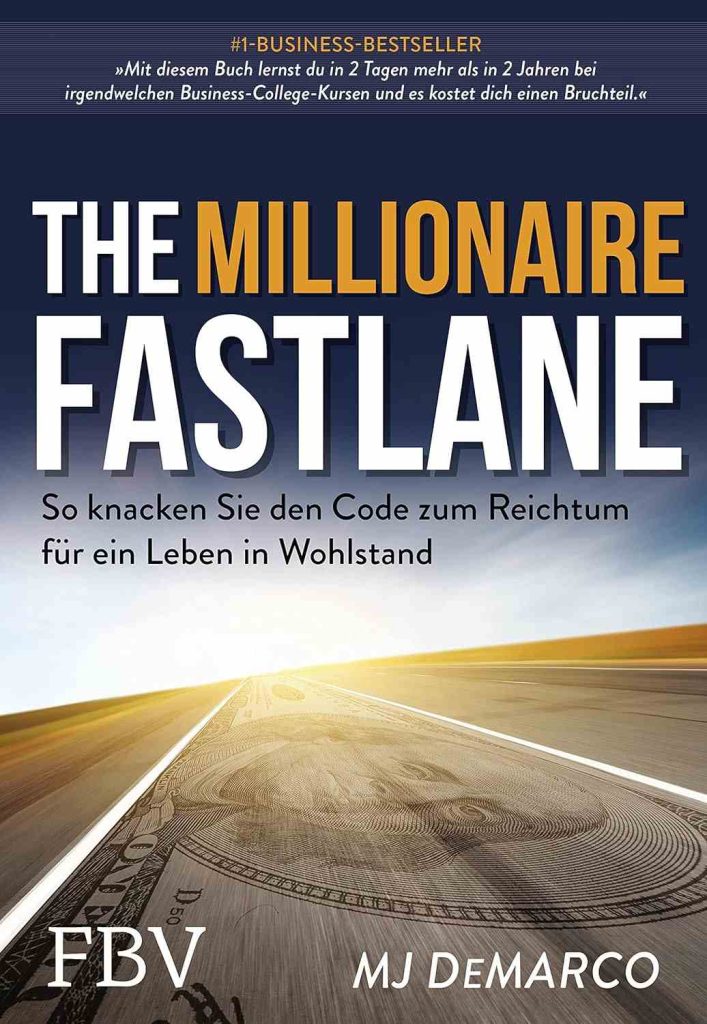
MJ talks about the three types of moneymakers: (1) Sidewalk, (2) Slowlane, (3) Fastlane.
(1) Sidewalk: These are the people who are living a sad life with money. They live paycheck to paycheck, lack savings, prioritize immediate gratification, and don’t care about long-term savings. Yeah, they also love taking huge loans.
(2) Slowlane: These people are far better than the Sidewalks. This is the lane that the majority of the people around the world take. The traditional, stable job approach. People walking in the Slowlane are those who see their money grow gradually over the years. Unfortunately, sometimes they spend their entire lives only accumulating money and not spending it.
(3) Fastlane: THIS IS IT!! The lane that only a few dare to enter. The Fastlane people are those who work their a*s off for 5 years. No vacation, no family time, no holidays. Their only aim is to achieve a single thing that most fear to achieve. These are the entrepreneurs, the so-called viral people on YouTube, and the so-called sudden Billionaire. People on the Fastlane prioritize creating huge value, solving real-life issues, and building something that generates money. The beauty about Fastlane is that it’s intense, but painful. The results are sweeter than any fruit nature can provide. Still there are only a handful who can do it.
Through his book, MJ DeMarco teaches you to awaken the Fastlane attitude within you. All the bloggers and YouTube channels you come across daily are the best examples of Fastlane. In my case, I’m a strict “fastlaner.” I seldom take any holiday, and most of my time is spent on creating value.
(3) I Will Teach You to Be Rich (Ramit Sethi)
As the name of the book suggest, I Will Teach You to be Rich is my second-favorite. If you want to become really good at money management and make money the right way, then this book will help you do it. If you liked reading The Psychology Of Money, then I Will Teach You to be Rich will be an another good read. The only difference is that this book is a little better at teaching you the value of making money and also managing it.
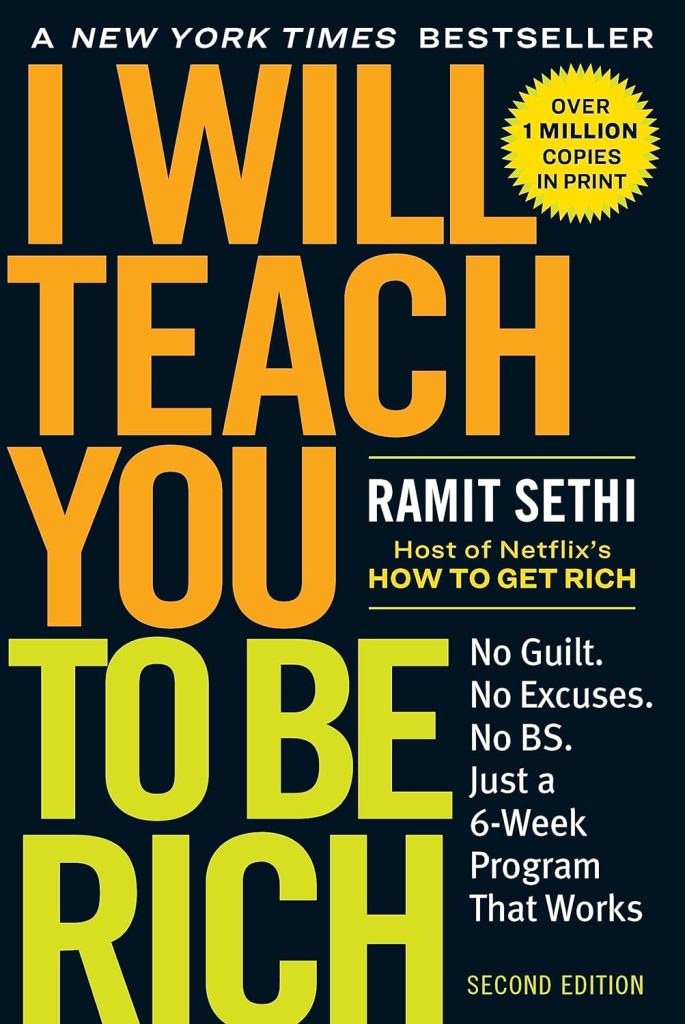
I Will Teach You to be Rich has this 6-week training program that gradually teaches you to manage your finances. In the 6-week program you’ll learn a wide range of topics like investing, budgeting, and the funniest part, that most books forget to include: How to spend your money the right way.
This will quickly become one of your favorite books because of it’s friendly writing style and it’s optimistic approach on money-making and money-spending. To answer your doubt, Ramit also uses real-life examples for people and their success stories, which can inspire and motivate you to take control of your money life.
(4) The Richest Man in Babylon (Samuel Clason)
In this list of books, The Richest Man in Babylon is the oldest one (1926). This book is nearly a century old and still stands the test of time. But this book is a bit different from The Psychology of Money and The Millionaire Fastlane. What’s so special about this book?
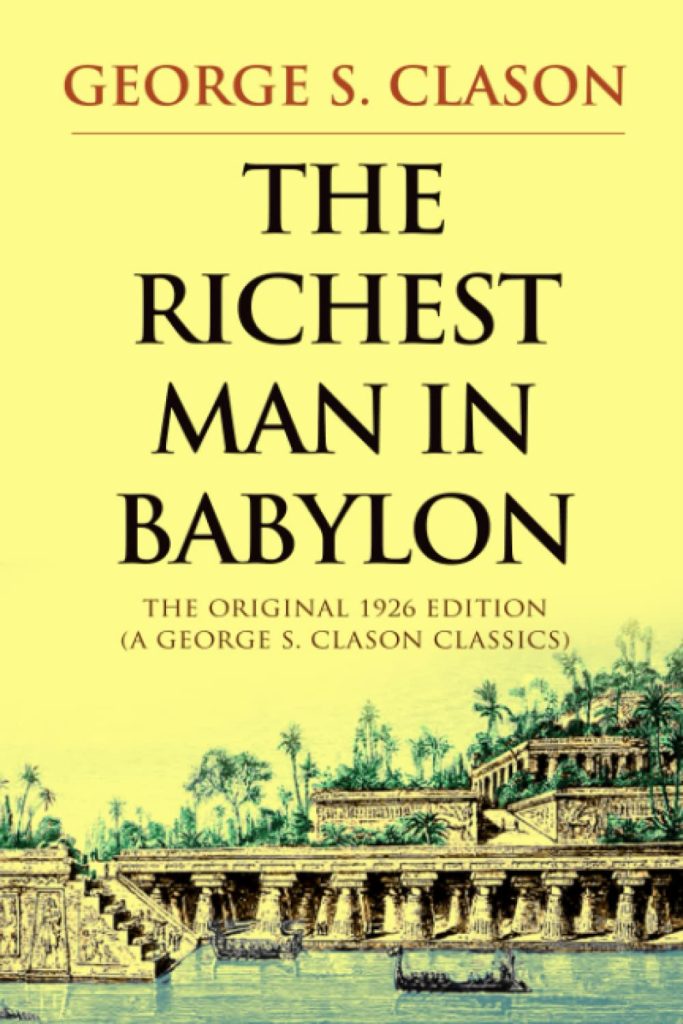
This book teaches fundamentals of financial principles. Principles that are time-tested and have worked (still works) at any given situation. The guides in this book is like a formula; it works at every situation. To make it an interesting read. George S. Clason has written the book not like any other finance book, but as a story.
The storytelling is so accurate and simple that anyone who loves reading will easily learn finance, and will actually remember. In the end, Clason not only teaches you to save money, but also to make it. It’s astonishing how Clason’s book is still relevant today. I strongly feel it’ll be relevant 100 years from today too…
(5) The Millionaire Next Door (Tomas J. Stanley)
This book is a bit different from the rest of the book I’ve mentioned above. The Millionaire Next Door reveals the hidden truth about the real wealthy people around you. Especially the ones you think are average, but actually have multi-millionaire dollars in total assets.
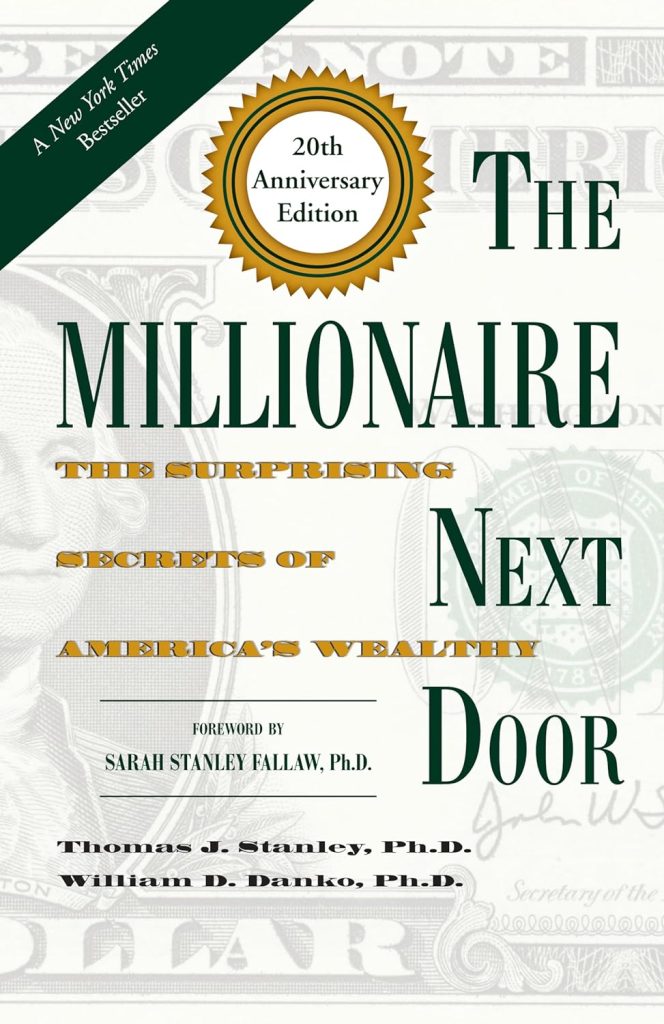
The Millionaire Next Door has worked for me as a myth-buster. Before I thought that a rich person is flashy and showcases their wealth on everyone’s face. If you think the same way, then this book will immediately break that misconception. The real wealthy people live a modest lifestyle. Of course, you’ll always find exceptions, but in most cases “old money” people aren’t extravagant.
Other than just talking about the “modest” life of millionaires, this book will also teach you to key habits of wealthy people, and the practical wealth-building techniques they use to maintain their wealth. The Millionaire Next Door is a good read if you’re a long-term player and want to generational wealth.
(6) The 4-Hour Workweek (Timothy Ferris)
Don’t fall for the scammy looking title. The 4-Hour Workweek is actually a good book if you’re thinking of finding loopholes and finding ideas to make money. What makes Timothy Ferris’ book good for beginner is that they don’t force you to learn complex mathematics, neither it’ll encourage you to become a finance god. The whole point of this book is to teach you the value of passive income and how you can actually make money working very little.
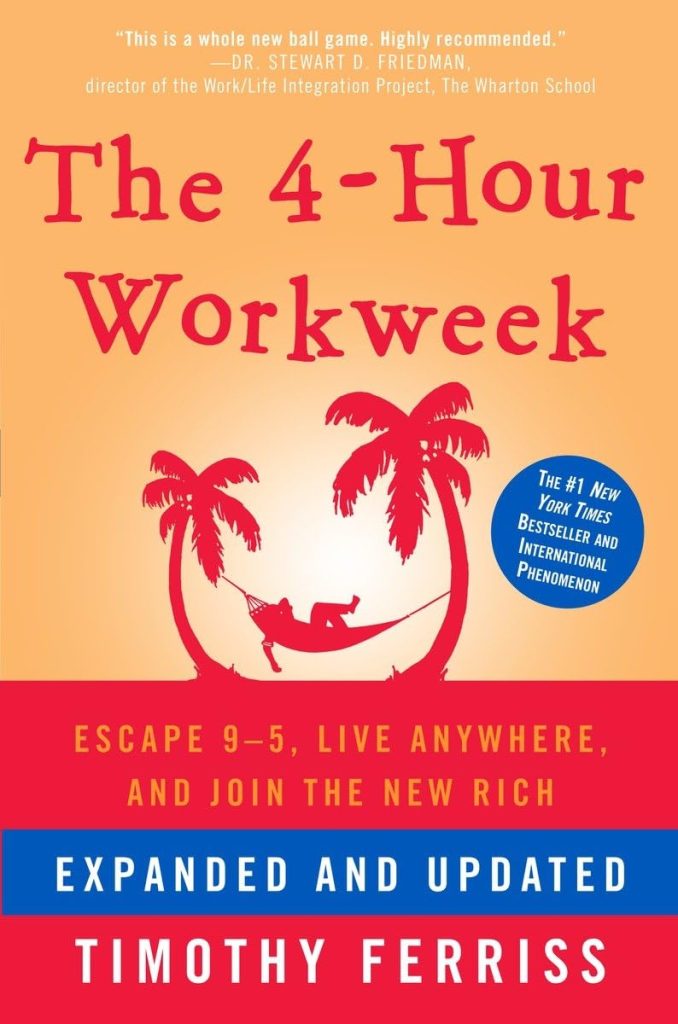
I would say, The 4-Hour Workweek and The Millionaire Fastlane are the two books that has good similarities. I have read The 4-Hour Workweek more than once, and these are four crucial things I learned from it:
(1) Value of Time
(2) Creating Passive Income Stream
(3) Taking Risk & Overcoming Fear
(4) Continuous Improvement
Guess what’s harder than money management? Time management. The 4-Hour Workweek teaches you time management. Then it goes on to teach you how powerful passive income is. Having a passive income gives you freedom. But, most people fail to build any passive income because they are scared, which is perfectly obvious. Timothy teaches you to overcome fear and embrace a healthy risk-taking habit. Finally, he recommends you to keep on developing your knowledge to secure your future.
There’s one similarity among all millionaire and billionaire. They read A LOT! Reading keeps your brain healthy and helps develop your business intuition. This book can literally change your life. Try it…
(7) The Latte Factor (David Bach)
I know what you’re thinking, so here’s the reason why this book is called “The Latte Factor.” The latter factor suggests that small daily expense can add up to a huge amount over time. For example, if you spend $5 every day for hot coffee, then at the end of the month your total expense stands at $150. Which is a substantial amount.
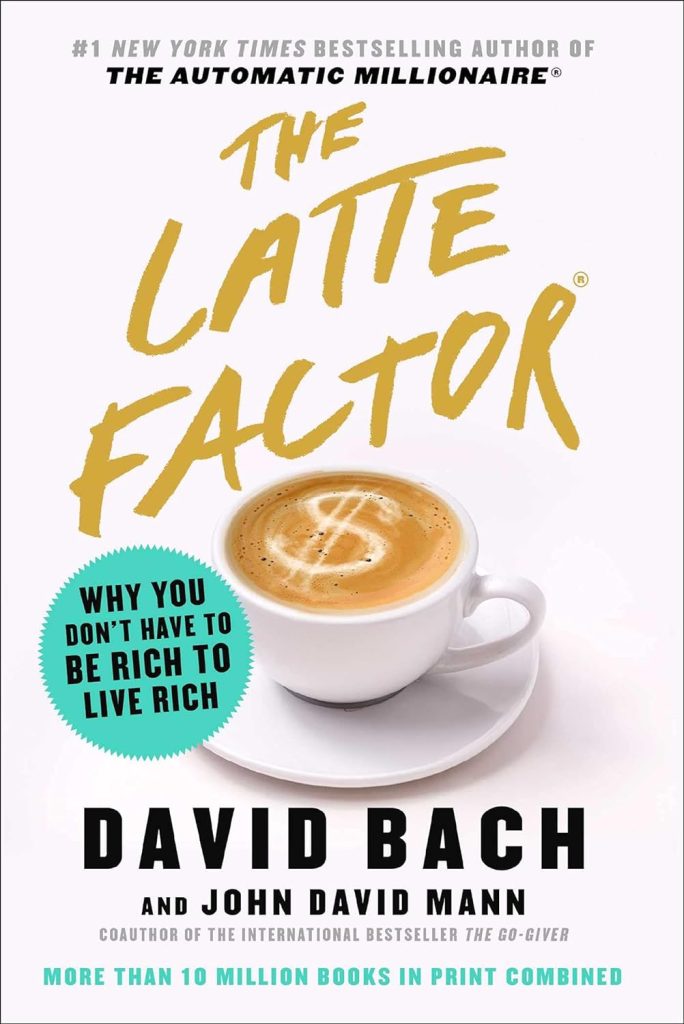
The Latter Factor is more focused towards saving money and budgeting, rather than making money. It’s one of the best books to learn how “paying yourself” can be so powerful in the long term. Paying yourself means keeping aside a portion of your monthly income towards savings and investments.
What makes The Latter Factor a good book is its timeless wisdom. The suggestion David Back provides in his book will not only work today, but will work for the next generations as well.
(8) The Bogleheads’ Guide to Investing (Mel Lindauer)
Personal finance is not just about saving money and becoming a budgeting guru, it’s also about investing and making more money. The Bogleheads’ Guide to Investing is the first book that comes to my mind when I think about the best beginner book on growing money. This book follows the principle of John C. Bogle (founder of Vanguard Group), hence, the name.
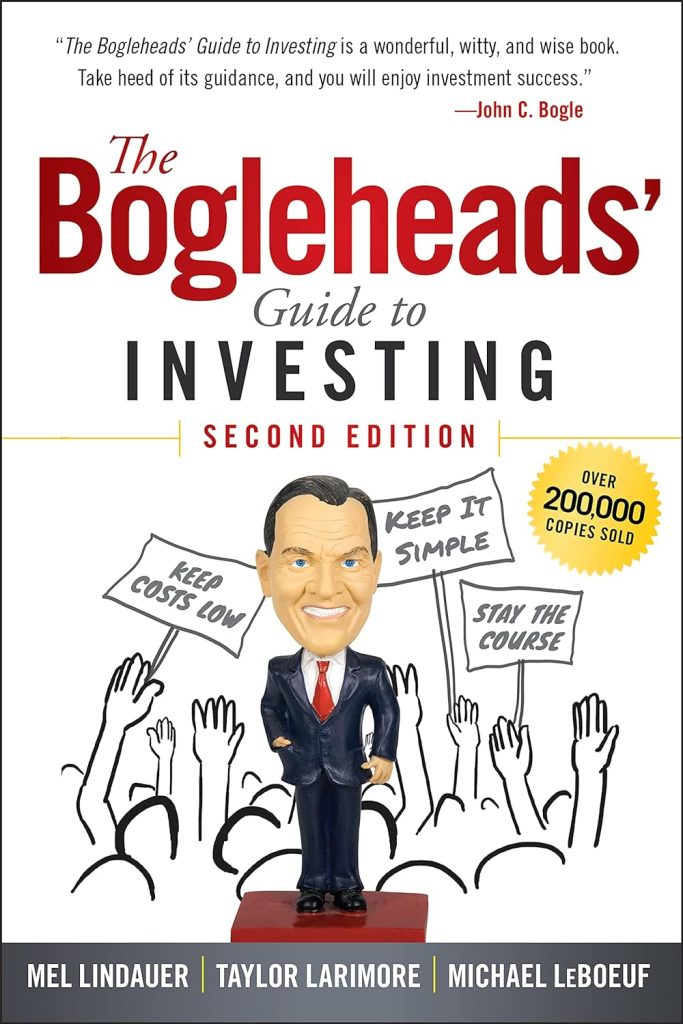
Bogle’s primary philosophy is “low-cost, passive investing.” Something that is super-important for long-term wealth creation. You may not be able to invest $10K in one go, but if you allot $1K every month, in 10 months you can reach that number, and it wouldn’t burn a hole in your pocket.
The two things I liked about this book is the idea of “diversification,” and “behavioral finance.” Risk management is essential, hence, diversifying your investments is important to mitigate financial recession. And, behavioral finance is one secret of the rich that they don’t reveal to us public.
Most people take their investment decisions emotionally, rather than logically and rationally. If you read this book, you’ll know the pitfalls of emotion-driven investment decisions.
(9) The One-Page Financial Plan (Carl Richards)
If you want a straight-forward approach to making a financial planner that actually works this is the book for you. The One-Page Financial Plan focuses on how simple it is to make a financial plan. Here’s a quick summary of the book:
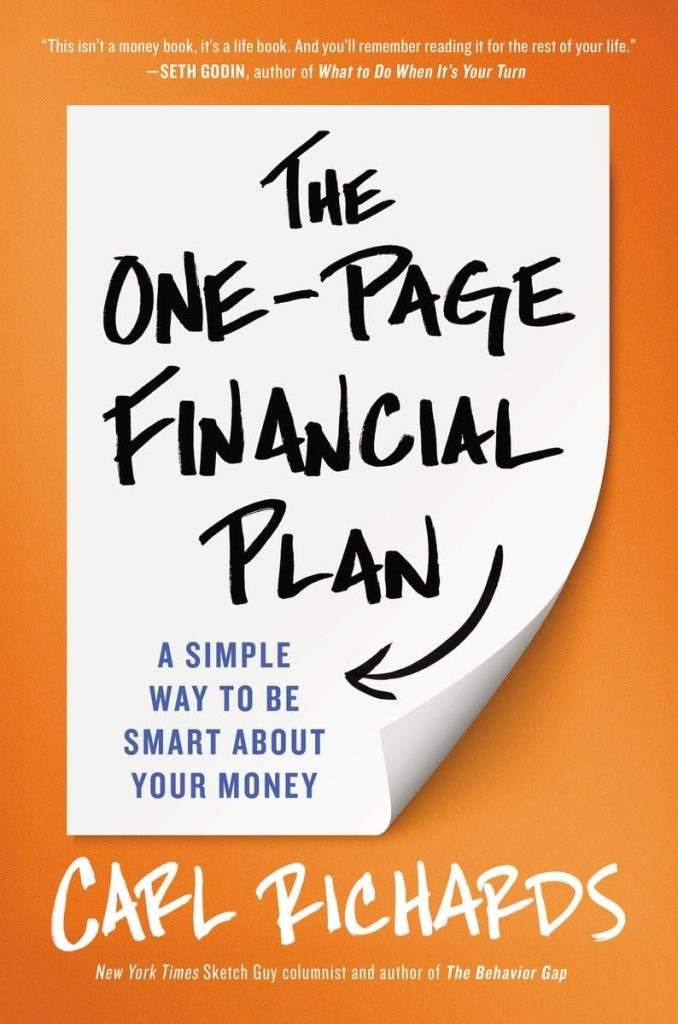
(a) Focus on what matters to you. Take your time and identify what do you want. What are your future plan? Your personal aspiration? It’s important to know that because your financial plan will depend on your lifestyle choices.
(b) Taking radical action. Once you’re decided, the next step is to assess your financial situation, and putting your immediate priorities first. Taking the psychological aspects of money, the book suggests you to keep your emotions towards money aside. Because they WILL hinder your decision-making ability.
(c) A flexible financial plan. Let’s be realistic. No matter how good you’re with money, uncertainty is a part of life. If your financial plan is too rigid, then you’ll face issues with something unexpected happens. Embrace adaptability and ensure your financial plan is relevant and effective over time.
In the end, Carl suggests the concept of “Progress over Perfection.“ Finance is an ongoing process, and making gradual changes is the best way to make it perfect. Although, no financial plan is a perfect one, but with practice and regular changes, your financial plan may reach close to perfection for you.
(10) You Are a Badass at Making Money (Jen Sincero)
This book is more like a “motivational guide” towards money. Jen encourages you to quit the self-limiting beliefs about money and adopt a mentality that attract abundance in life. If you think this book doesn’t provide any value then you’re so wrong. We underestimate how many people see making money as “devilish.” It’s heartbreaking!
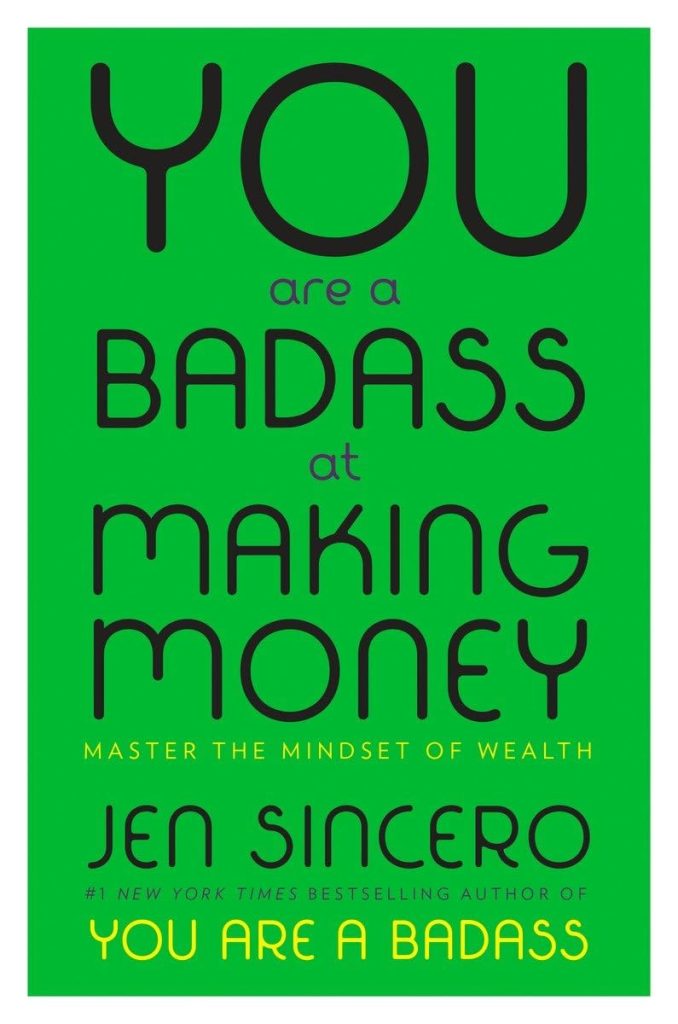
The author shares her personal rags to riches story that may encourage you to make money. Additionally, she also includes a practical exercise with every chapter that’ll help you make positive progress with money and eventually achieve your financial goals.
What’s more surprising is that she also talks about the power of law of attraction, and how she manifested an opulent life by visualizing it in detail. This book is more inclined towards developing a positive money mindset and run with it. If you love to have an encouragement pill, then Jen Sincero’s book will deliver.
(11) The Total Money Makeover (Dave Ramsey)
Ask a person who is desperate to come out of debt about this book, and they will say recognize it. They might not have read this book, but they sure have seen it, or know about Dave Ramsey. This book is the OG of personal finance space and I can write an entire post on this book alone.
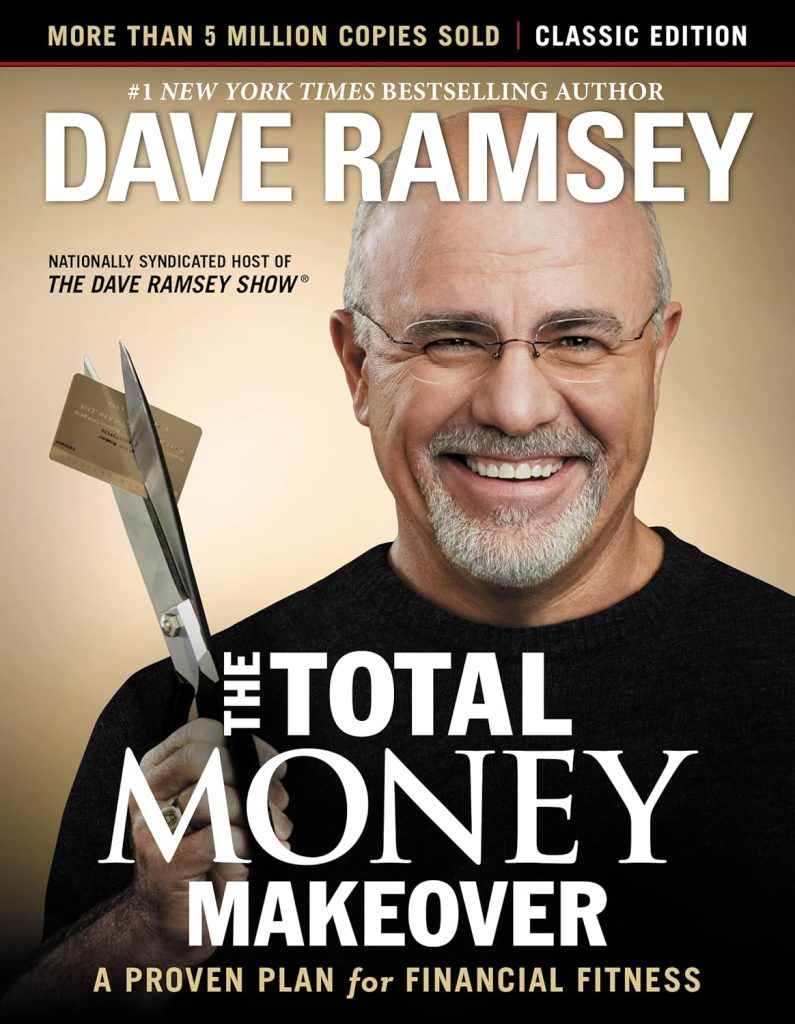
But, I’ll keep it short because I want you to read it yourself. But before you read it, here are the few things that this book will teach you:
(a) A proven Plan. Dave presents you a step-by-step plan to eliminate debt and become cash-positive.
(b) The value of Emergency Fund. As the name suggests, having an emergency fund shields you from any disaster. Dave suggests you to allot $1,000 for your emergency fund, and eventually expand the sum large enough to cover 3-6 months of all your expenses.
(c) Embrace strict financial discipline. Dave encourages your to embrace frugality in life. He suggests you to sacrifice the short-term gain and replace it with long-term gain. Once your debt-free, you can increase your spending.
(d) Start wealth building. Now, the real magic happens. Dave Ramsey says that once your debts are paid off, you can shift your focus from debt-payment and building an emergency fund to investing, wealthy building, and retirement planning.
I can go on with this, but I’ll stop here. This is a great book, and I will suggest you to buy a hard copy for future preference. It’s a healthy habit to read these books every often to strengthen your financial decisions and mitigating any bad investments.
(12) The Financial Diet (Chelsea Fagan)
By now you’ll observe that every beginner finance book is nearly a repetition of another finance book. The Financial Diet is also similar to other beginner finance books, but there’s a slight difference. Factors like cooking at home, work-life balance, and DIY products are an attempt to squeeze “money saving” till its last drop. Yet, this book if a good read.
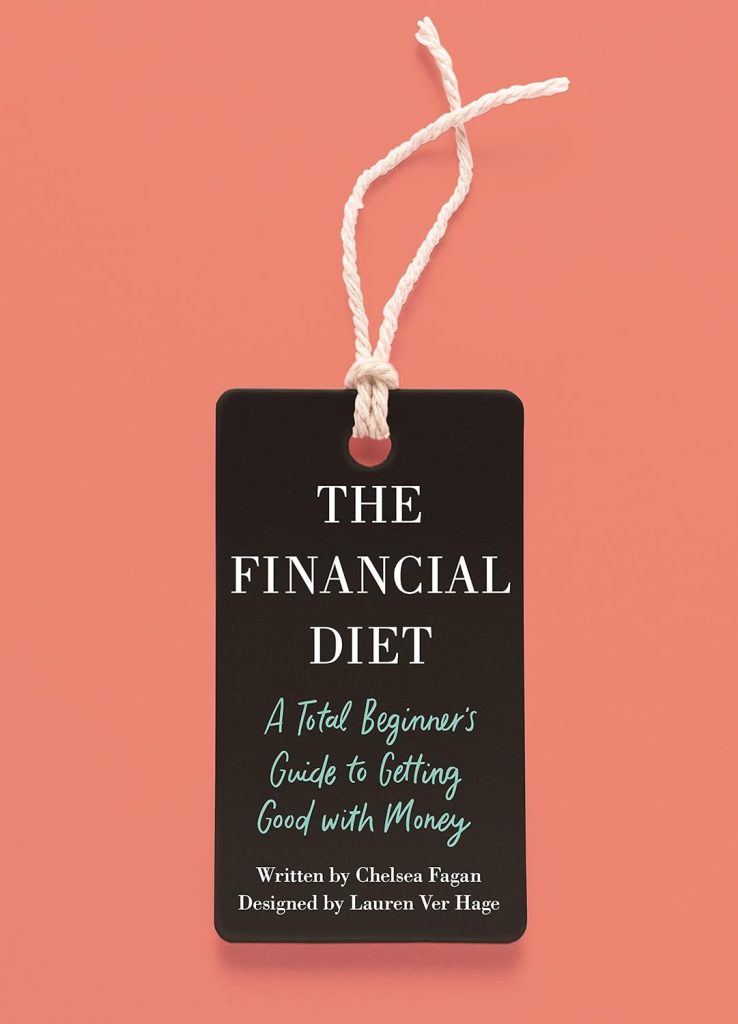
But I’ll be honest here. If you have read the books I have suggested above, then you can either skip this book, or you can read it to find something new. I started this book, but could not complete it because I felt the concepts where all the same.
Of course, it’s a good book, and you can read it if you want…
(13) Think And Grow Rich (Napoleon Hill)
Think and Grow Rich is probably the most famous book on law of attraction and manifesting. In fact, I would say that this book officially started the so-called “manifestation trend.” Anyways, the title of the book is partially misleading. Not that you can’t get rich by thinking like a rich person, but there are more to it.
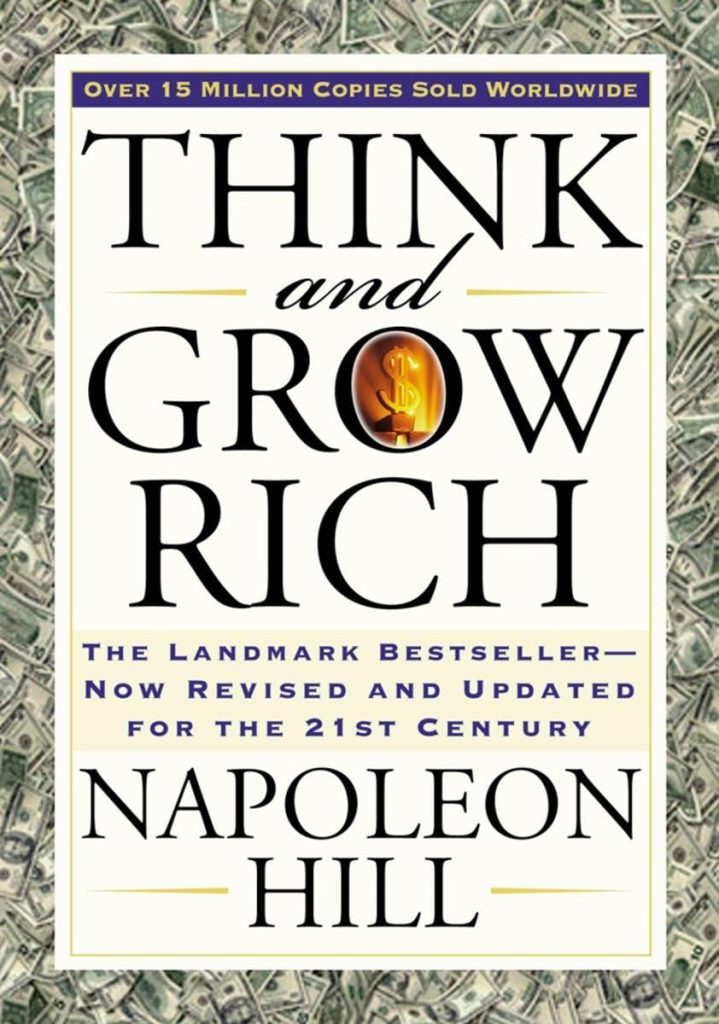
Think and Grow Rich was published in 1937, and is still one of the bestsellers on Amazon. Why? Because this book provides good value. Napoleon Hill teaches you to not just think about money, but also getting yourself prepared to receive opportunities and taking them. He also teaches the power of the subconscious mind and how to access it.
The best part that this book is not a 1,000-page journal. It’s a small book, and if you’re a fast reader, you can read it in two days. Think and Grow Rich is more inclined towards teaching you to become successful, not just making money. Hill teaches you the exact process of becoming successful and making money. He does not talk about any particular profession, neither he talks about the age, his principles are universal and time-tested.
If you’ve already read this book, then it’s a good time to read it once again. It’s always a good idea to keep your mind updated with good principles.
(14) The Automatic Millionaire (David Bach)
Another David Bach book in this list, The Automatic Millionaire is a great book if you want to automate your finance. Be it automatic savings, investments, and bill payments David Bach offers an idea to do it automatic. If you think deeply, it’s not that people don’t like saving or investing money, but they are too reluctant when they have to do it repeatedly. Those who have the willpower and discipline achieve it easily, while those who don’t spend the money at something unnecessary and regret it later.
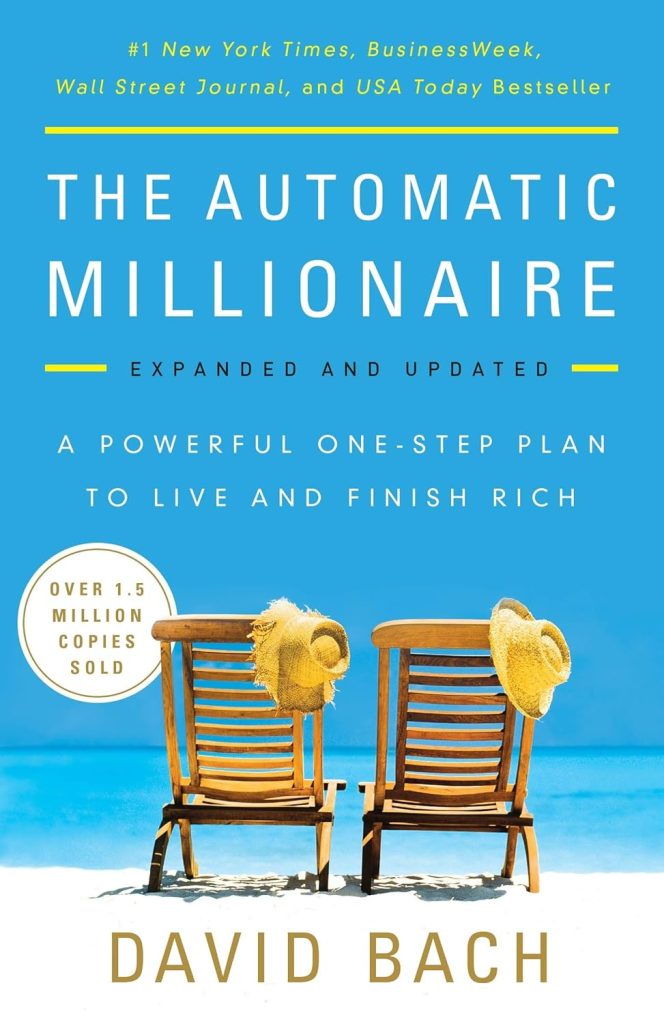
David also talks about “the latter factor“ in this book and explains its importance. One crucial thing that you’ll learn from this book is that Bach’s ideas don’t need any tight budgeting and financial planning. Since everything is automatic, you just set and forget.
Initially it may irk you, but after a point of time when you see your savings grow, you’ll feel good and secure about your future. Yes, this book has few similarities with David’s other book “The Latte Factor” but, still The Automatic Millionaire is a good read.
(15) One Up On Wall Street (Peter Lynch)
If you read all the books I’ve listed up until now, you’ll be better than most people in managing your finances. All these books teach you the real secrets of personal finance and how money actually works.
Now it’s time we step up and learn about investing as well. Because, no matter how much you learn about managing money, unless you know how to increase it, your knowledge is of no use.
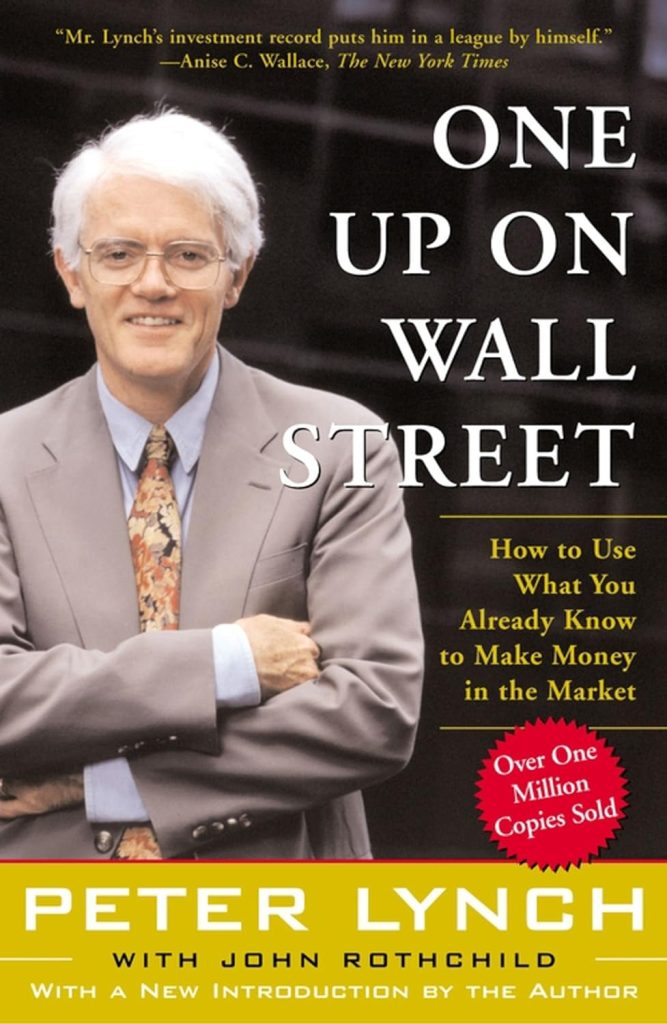
This is what Wikipedia says about Peter Lynch:
Peter Lynch (born January 19, 1944) is an American investor, mutual fund manager, author and philanthropist. As the manager of the Magellan Fund at Fidelity Investments between 1977 and 1990, Lynch averaged a 29.2% annual return, consistently more than double the S&P 500 stock market index and making it the best-performing mutual fund in the world. During his 13-year tenure, assets under management increased from US$18 million to $14 billion.
If you know just a slight a bit of history of the stock market, then you know that between his tenure, The Wall Street crashed twice, and still he managed to outperform the market. Turning $18M to $14B is like 777x return, which is absolute INSANE!!
In his book Peter has described how he chose a stock and how he weeded off the bad ones. Once you read the entire book, you’ll know how easy it actually is to pick a good company and make huge profits. I read One Up On Wall Street back in 2017, and I can’t explain how much this book have helped me pick my investments.
(16) Common Stocks and Uncommon Profits (Philip A. Fisher)
As the name of the book suggests, Common Stocks and Uncommon Profits is a great book to find out the most uncommon stocks and make huge profits from them. If you look at the past decades, you’ll find that the highest profit-maker stocks are the ones you don’t know about. Of course, no all of them, but most of the time you’ll find that huge multiple investors are mostly from unknown and hidden companies.
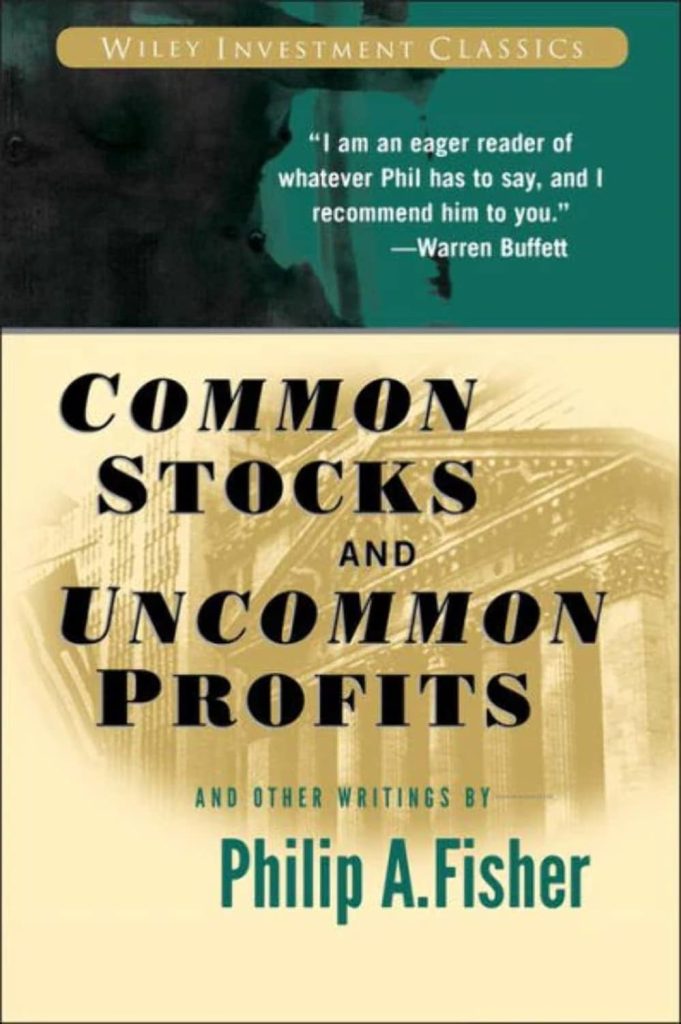
One Up on Wall Street also nicely talks about how to find unique stocks and the actually process of finding them.
(17) The Intelligent Investor (Benjamin Graham)
The Intelligent Investor is THE book to learn the basics of investing and how markets actually work. In fact, this book is more leaning towards investing, but if personal finance and money management is incomplete without investing money in the right place.
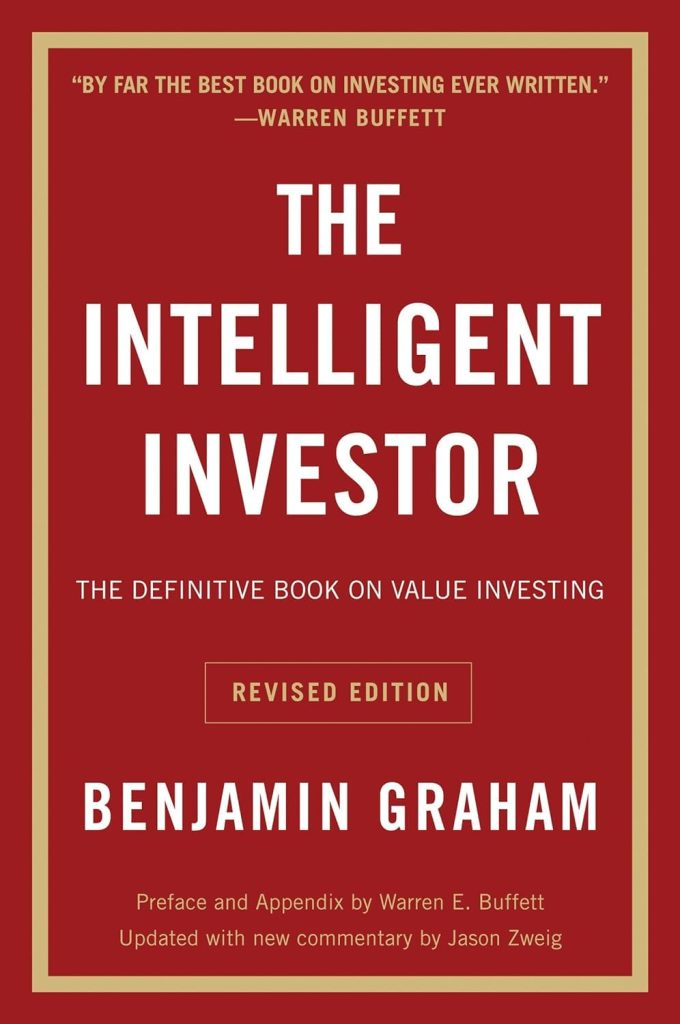
Warren Buffett was Graham’s student and read The Intelligent Investor to learn the basics of investing and also how weed out bad and scammy companies. I read The Intelligent Investor back in 2017, and trust me, this book can easily stand the test of time.
You know why? Investment dependent more on human nature, than only mathematical calculations. Lastly, I’ll recommend you to read One Up on Wall Street before reading The Intelligent Investor, because Peter Lynch’s book is focused entirely towards beginner, but The Intelligent Investor is focused more for intermediates.
To Conclude
I guess you found it, didn’t you? I did not recommend Rich Dad Poor Dad. Honestly, this book by Robert Kiyosaki is the go-to book for most absolute finance beginner. Trust me, the books I’ve recommend in this post are far better than Rich Dad Poor Dad. Of course, you are free to read if you want to, but it’s not necessary. Psychology of Money is more modern and a breath of fresh air in the personal finance space.
Finally, one thing I learned the hard way is: If you think ONLY reading books will do the job, and you’ll become an expert in money management, then you’re wrong. Yes, books help you take crucial and complex decisions, but what it doesn’t teach you is real-life experiences. Because no matter how many finance books you read, it won’t matter forget everything when the times comes and mismanage money.
It’s easy to take control of all your money when you’re living paycheck to paycheck. But if you practice the same, healthy money saving techniques, then you’ll never go broke in life no matter how hard you’re hit by recession.
All the previous recessions have exposed the real people with the fake ones. While the people good with finance only felt a little jerk in 2008, some of the so-called “millionaire” had to lick the streets. It’s better to be prepared than to panic and lose your life-savings.


